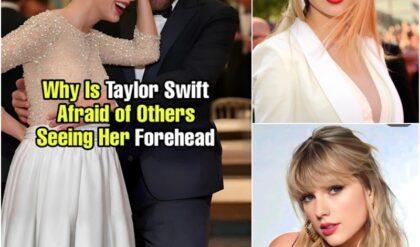In a move that has reignited the ongoing debate about gender and competitive fairness in sports, a girls’ high school basketball team recently made headlines by refusing to play against a team with biological male players. Their reasoning was simple yet profound: “It’s not right.” This decision, while stirring controversy, also highlights the complex and sensitive issues surrounding gender identity and sports fairness.
At the heart of this controversy lies the question of how gender identity intersects with sports. For years, the participation of transgender athletes in competitive sports has been a topic of heated debate. Advocates for transgender rights argue for inclusivity and the right for athletes to compete in accordance with their gender identity. Critics, however, voice concerns about the fairness of such participation, especially in female sports, pointing to the potential physical advantages of athletes who have undergone male puberty.
The girls’ basketball team’s decision not to compete raises critical questions about the nature of fair competition. Is it fair to ask young female athletes to compete against someone who may have inherent physiological advantages? Conversely, is it fair to exclude athletes from competing in categories that align with their gender identity? This is the crux of the dilemma facing sports today.
Biological differences, particularly those affecting athletic performance, are well-documented. These include differences in muscle mass, bone density, and testosterone levels, which can confer advantages in physical strength and endurance. Critics argue that these differences can provide transgender women, particularly those who transition after puberty, with an unfair advantage in sports.

On the other side of the debate is the principle of inclusivity, a fundamental value in modern sports. Excluding transgender athletes from competing in categories that align with their gender identity can be seen as discriminatory. It’s a delicate balance between ensuring fair competition and respecting the rights and identities of all athletes.
In attempts to navigate this complex issue, governing bodies like the International Olympic Committee (IOC) have set guidelines, often involving hormone therapy requirements for transgender athletes. However, the effectiveness and fairness of these guidelines are continually debated.
The decision by the girls’ basketball team shines a light on the impact of these debates on young athletes. High school sports play a critical role in youth development, imparting lessons in teamwork, discipline, and confidence. When issues of fairness and inclusivity meet in this arena, it places young athletes at the center of a sophisticated and adult debate.
For the girls on this team, their stand is about more than a single game or season. It’s a statement about the principles they believe should be upheld in competitive sports. By choosing not to compete, they are voicing their perspective on fairness in sports.
This situation also raises significant legal and ethical considerations. In the United States, Title IX, a federal law enacted in 1972, prohibits sex-based discrimination in any education program or activity receiving federal funding, including athletics. How does this law apply in the context of transgender athletes? The interpretation of Title IX in sports is an evolving legal issue.
Moreover, there’s an ethical dilemma in balancing the rights of one group without infringing on the rights of another. It’s a challenge that does not have straightforward answers.
The action taken by the girls’ basketball team is more than a protest; it’s a contribution to a larger conversation about fairness and inclusion in sports. Their decision is part of a broader dialogue that challenges us to think about how we define fairness, competition, and inclusivity.
The key challenge moving forward is to find a path that respects the rights and identities of all athletes while maintaining the integrity of competitive sports. This will require open, honest, and sometimes uncomfortable conversations, along with a willingness to adapt and reconsider established beliefs and practices.
In conclusion, the stance taken by the girls’ basketball team is a microcosm of a much larger and ongoing debate. It’s a debate that concerns not just athletes, coaches, and sports administrators but society as a whole. How we respond to and resolve these issues will shape the future of competitive sports and reflect our collective values.
As this debate continues to evolve, it’s crucial to consider all perspectives, especially the experiences and challenges faced by the athletes at the heart of this issue. Their voices will be key in navigating this complex matter and ensuring a fair, respectful, and inclusive environment in competitive sports for all.





